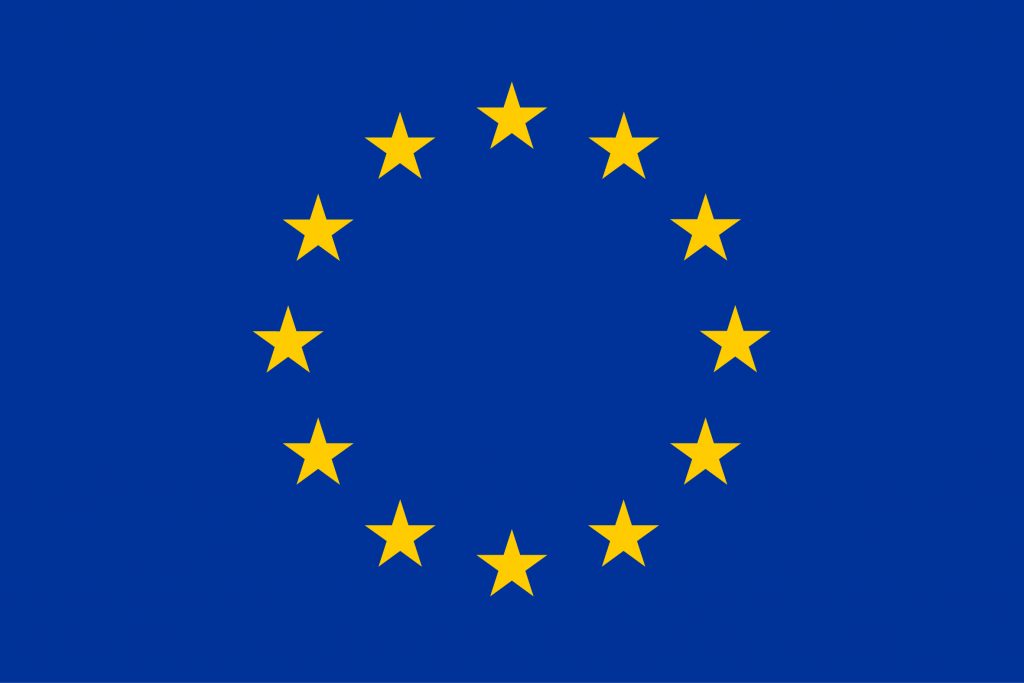NEWS FROM THE PILOT
The INCULTUM pilot as case study at the course of Tourism Science of Campus Foundation
Having visited the INCULTUM pilot site and the ethnographic museum and attended at the theatrical performance, the students were able to propose interesting and innovative papers that included the themes of sustainability, slow tourism and de-seasonalisation, perfectly in line with the values promoted by INCULTUM. Read the news on the blog for further information.
Management of Territorial Tourism Development
In the frame of the Executive Master Management of Territorial Tourism Development organised by Fondazione Campus and Touring Club Italiano, the INCULTUM project was presented and discussed with the students and teachers participating in the master. Read the news on the blog for further information.
Location
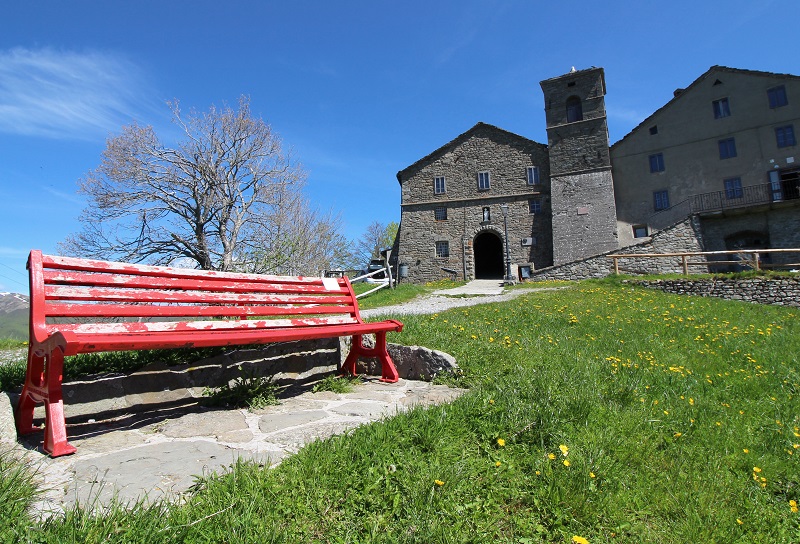
San Pellegrino in Alpe, hamlet located on the Tuscan-Emilian Apennines, between the provinces of
Lucca and Modena.
Responsible partner: University of Pisa
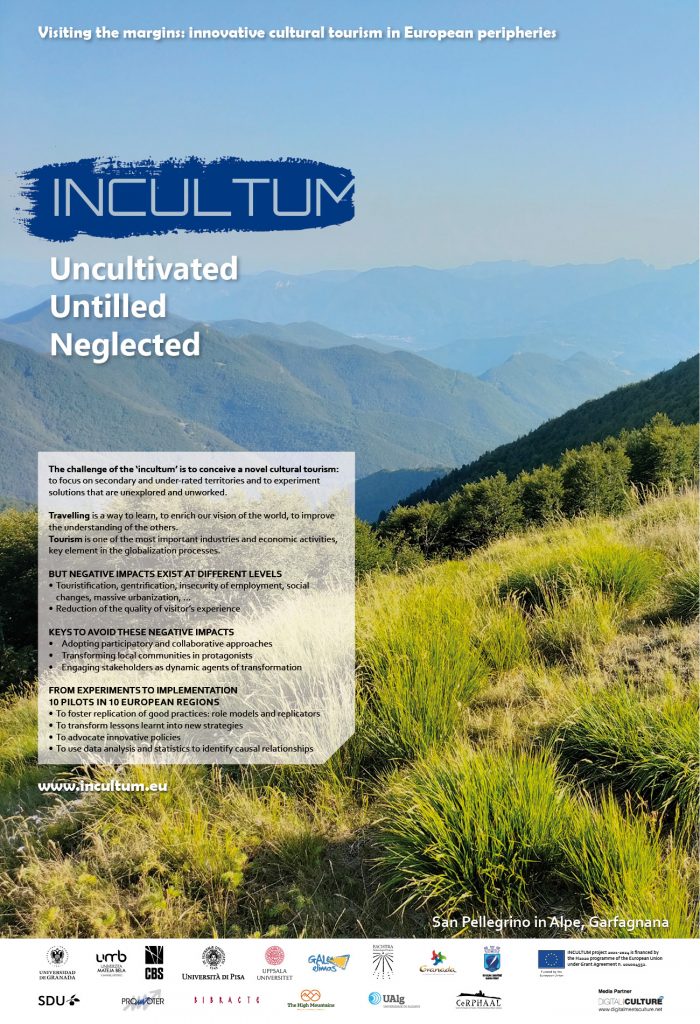
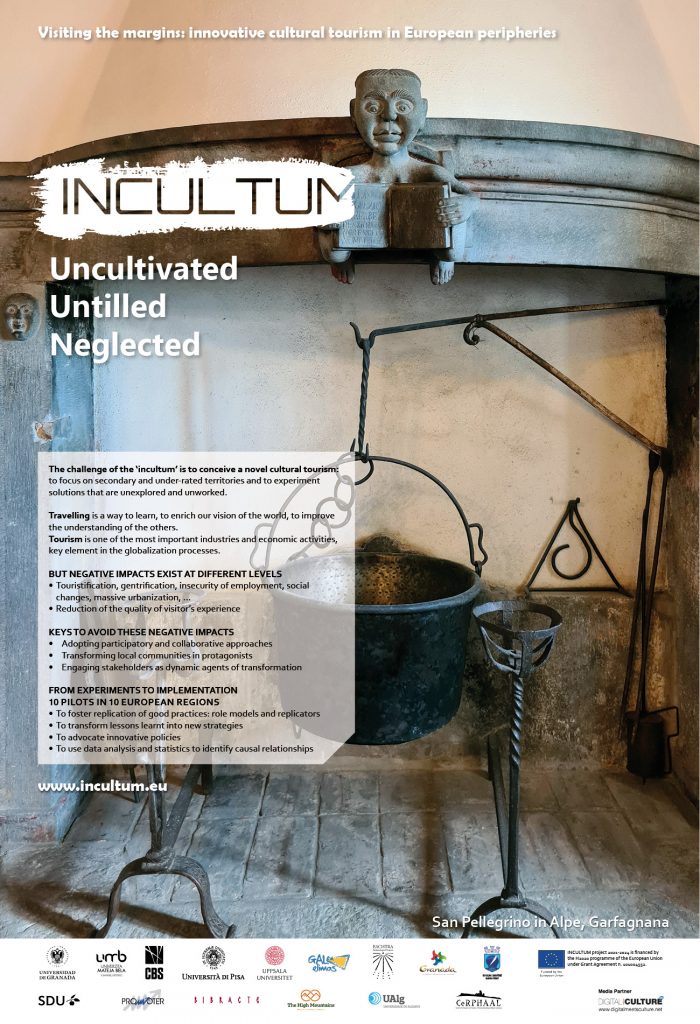
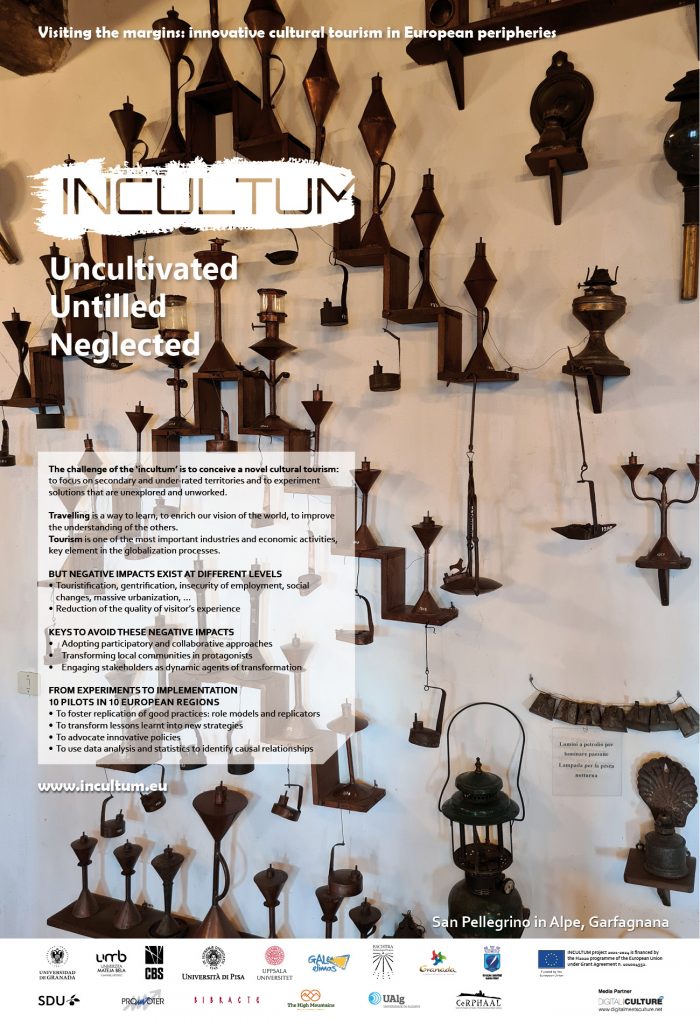
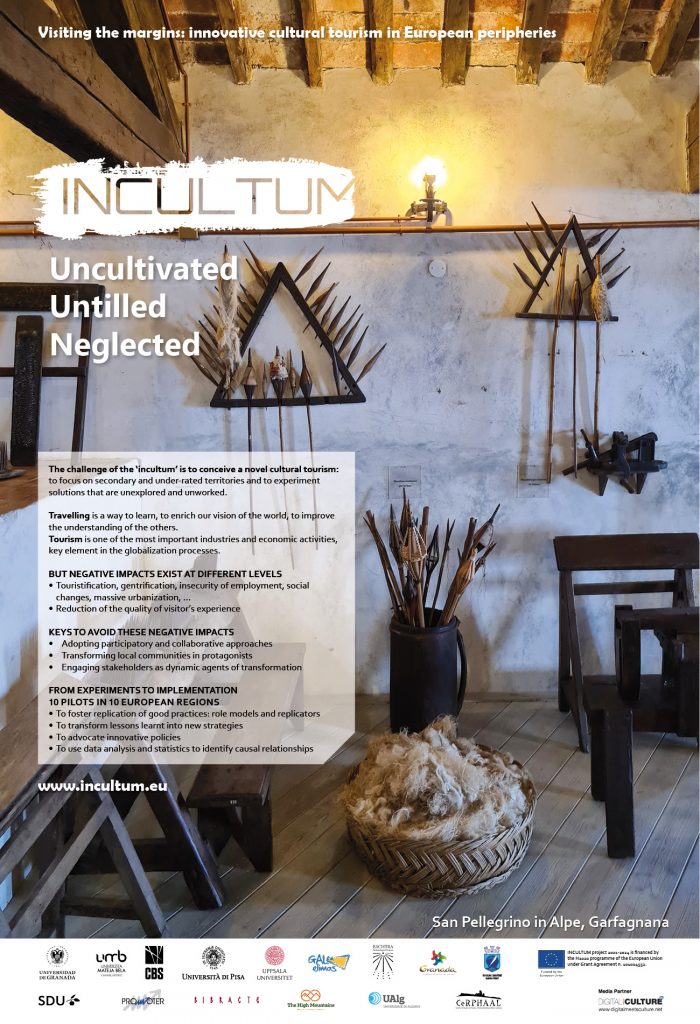
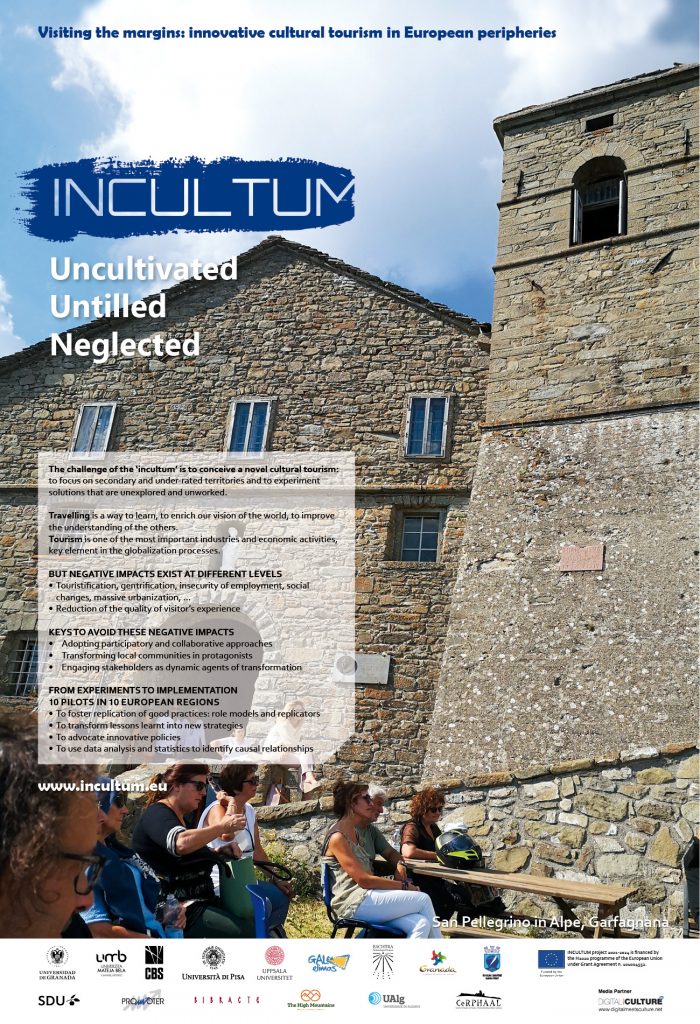
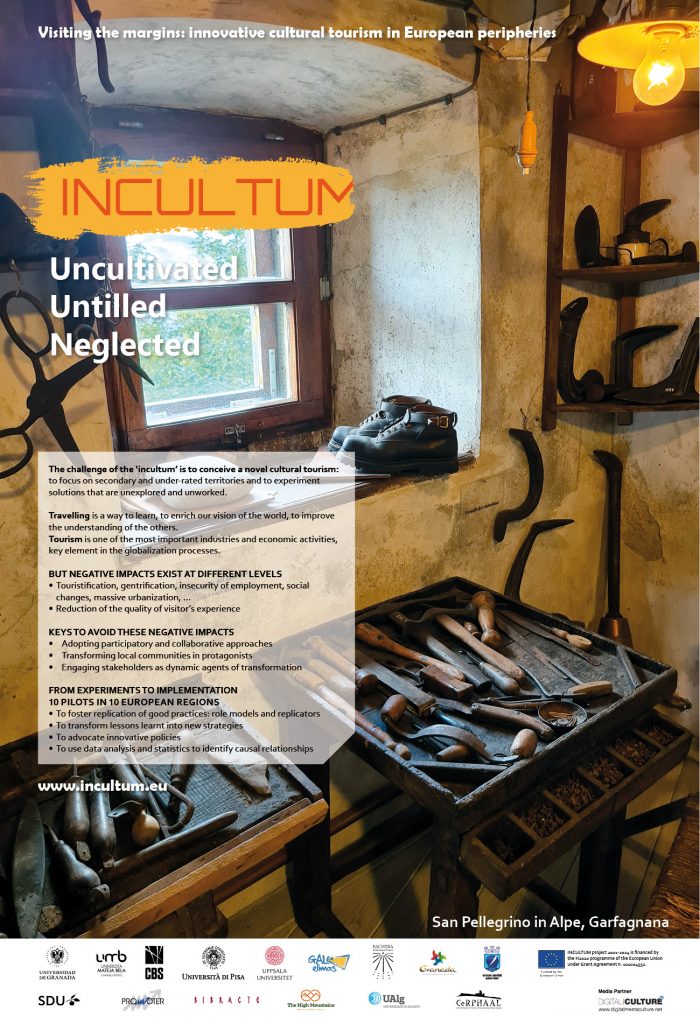
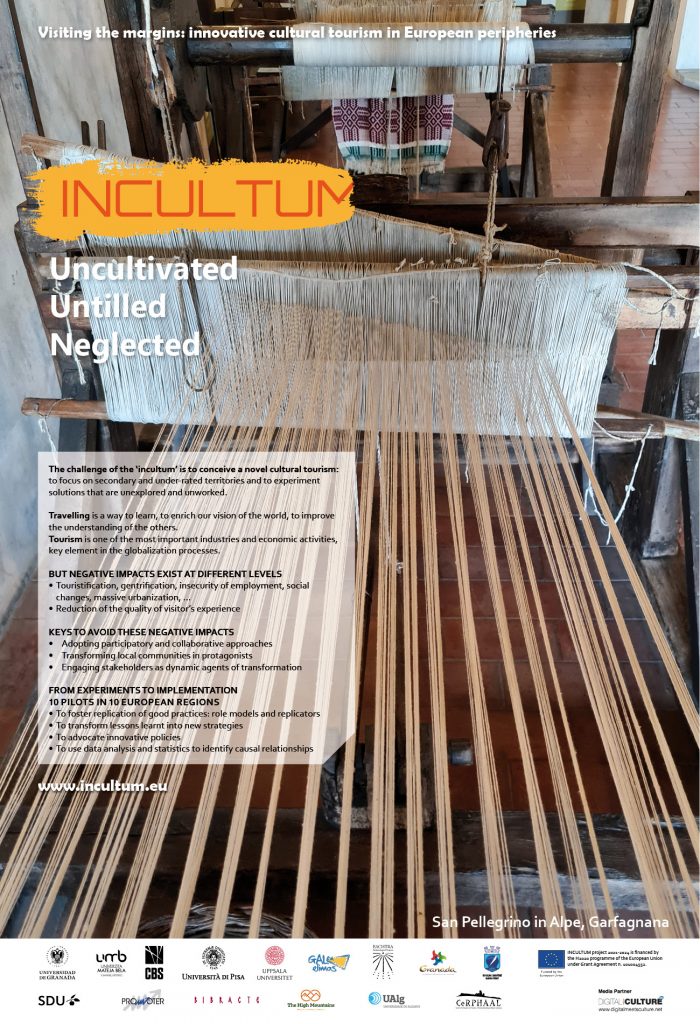
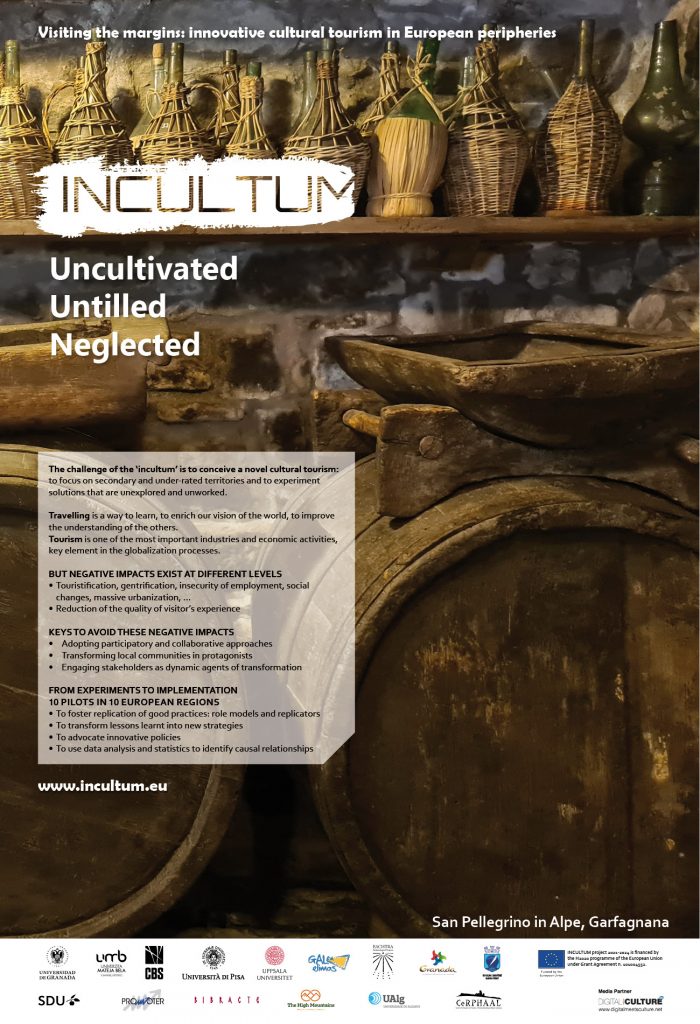
Context
San Pellegrino in Alpe is the highest permanently inhabited area in the whole Apennine chain; it belongs simultaneously to two municipalities (Castiglione and Frassinoro), two provinces (Lucca and Modena) and two regions (Tuscany and Emilia-Romagna), in fact, despite being geographically located on the Tuscan Apennine side, it constitutes an administrative island of Emilia-Romagna. The site is located on the “Via Vandelli”, an historical commercial and military road, designed and built in the 18th century, inside the Tuscan-Emilian Apennine National Park. On the site there are:
- The Sanctuary of San Pellegrino in Alpe or Santi Pellegrino e Bianco;
- An ancient Ospitale (a type of inn or hospice for travellers and pilgrims);
- The Ethnographic Museum “Don Luigi Pellegrini”.
Due to its position it has constituted, since the Middle Ages, a passage for pilgrims and merchants. The village still retains the ancient characteristics of an alpine village dominated by the architectural complex of the Sanctuary and the ancient Ospitale. To renew the offer of the “San Pellegrino system”, the first fundamental step is to look at all its strengths as a microtourist system that includes, in an organic way, all that is attractive: ethnographic collection, discovery of the history of Saints Blaise and Pilgrim (religious tourism), the living conditions and hospitality of pilgrims of yesterday and today, the landscape.
Pilot’s Presentation
INCULTUM general Assembly 28-10-2021
Download Pilot’s factsheet (English and Italian language):
Actions
Training of staff able to accompany visitors to the discovery of an internal micro-itinerary that includes: ethnographic exhibition, Sanctuary, panoramic viewpoints and new areas set up ad hoc. From similar experiences, the presence of a welcoming guide is a very precious added value. Experiential tourism, which is the current growing trend and the direction taken by rural areas that have discovered their vocation for tourism, understands and favours the human factor together with the technological one. The action is aimed both at cultural tourism operators and hiking guides in order to create a continuum between culture and nature that optimally represents the territory and its potential. We plan to organize at least five training sessions per year to involve as many operators as possible.
To plan a series of initiatives to give demonstrations of ancient crafts, in order to document the reality of those who still practice them and to promote their knowledge and transmission.
New museum area “immersive experience”, dedicated to the theme of the journey faced by pilgrims in transit to San Pellegrino, Lucca or more distant destinations. Using techniques of high scenography (with stimuli addressed to all the senses) and video projections, visitors will find themselves in the shoes of those travellers, meeting the other characters who travelled along the same streets, taking home a mix of emotions and content transmitted in an innovative and impressive way. Particular attention will be given to young students (primary and secondary education) in order to highlight the identity of the territory and to transmit to the new generations the knowledge and skills of the past. For this purpose, five immersive visits / theatrical performances will be organized each year of the project.
Creation of a didactic lab dedicated to museum users at learning age, with activities specifically designed for them, to deepen the experience of the visit with a practical phase dedicated to the various topics dealt with during the tour.
As associated partner the Mansio Hospitalis Lucensis Association, which already operates in the territory in the organization of some events, will be involved in the organization and development of these activities. They will organize the “immersive experience” and manage the demonstrations of the traditional crafts.
Furthermore, analysis of the tourism demand in terms of tourism flows, behaviours and routes will be performed. This will involve the use of a combination of official statistics (e.g. ticketing, hospitality, etc.) and of advanced analytics (e.g. mobile phone data analysis, social media analysis, etc.), applying innovative statistical methods, tools and indicators and qualitative concepts for measuring and understanding the impact of cultural tourism. This action will help policy makers in better understanding the phenomenon and in efficiently planning the new actions for the development of cultural tourism in the area.
Posters of the four theatrical events in San Pellegrino in Alpe during 2023
Communities involved
Local community; members of the territory of the Tuscan-Emilian Apennines Park and the Fortezza Verrucole Archeopark; staff of the tourist-cultural sector; operators of nature-based tourism.
Expected results
Relaunch of the ethnographic museum of San Pellegrino in Alpe and creation of a wider tourist system aimed at increasing the impact of cultural tourism in a small/remote area. The involvement of the younger generations will lead to strengthening their cultural identity and will serve to stimulate the focus on youth in the development of culture policies. This will have also an impact on the socio-economic development of the area through the implementation of the “mountain economy” concept in the most relevant economic sectors in mountain areas: the hospitality sector will continue to benefit from the presence of a greater number of tourists even in the “low season”; the appropriate training will allow operators to expand their offer by integrating different forms of tourism such as landscape and cultural tourism; agricultural producers in the area will be able to benefit from greater visibility and therefore a potential greater demand for products. The expected strengthening of the connections with EXARC, the global network of professionals for those active in archaeological open-air museums as well as in experimental archaeology, ancient technology and interpretation, is certainly an important added value, in a cross-national collaboration perspective.
Associated partners
Associazione Mansio Hospitalis Lucensis
Innovations
Promoting traditional practices by enhancing interaction and learning by experiencing; didactic laboratory dedicated to museum users at learning age; geo-itineraries that promote the integration of different forms of tourism such as cultural, naturalistic and food and wine tourism.
.




